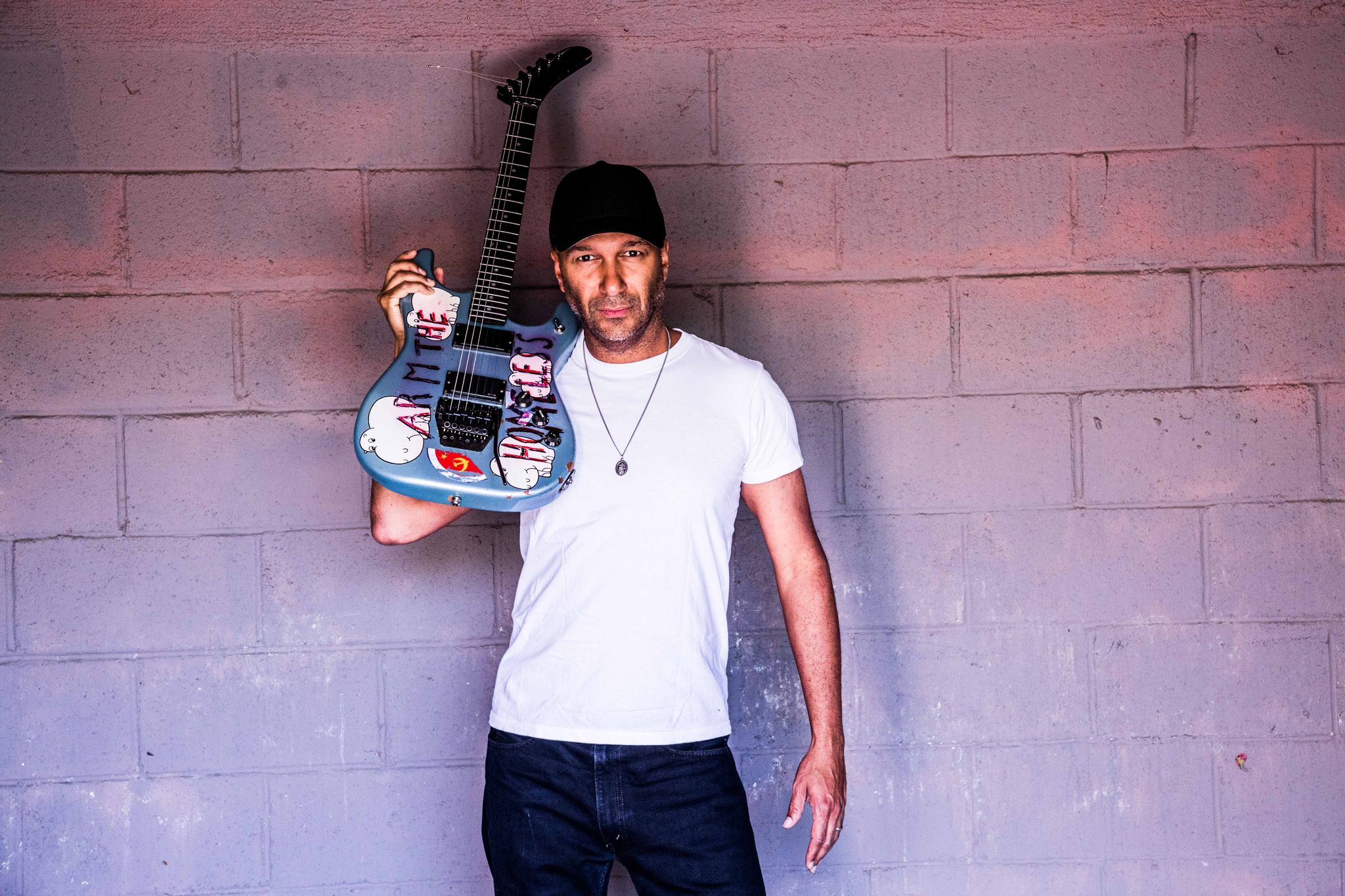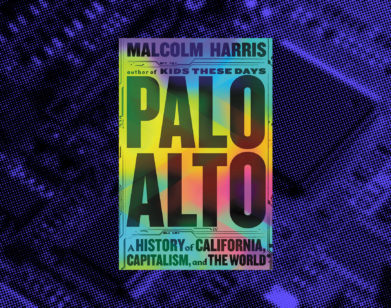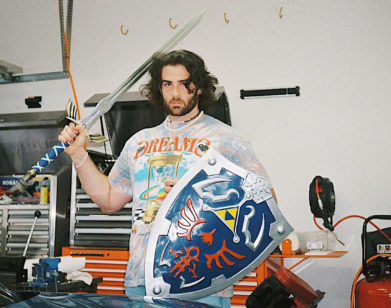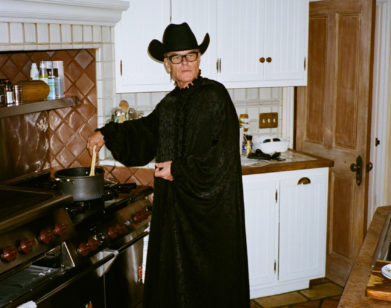bulls on parade
“Chickens Came Home to Roost”: Rage Against the Machine’s Tom Morello on the World As We Know It

Tom Morello has never been shy about his convictions. Best known as the virtuoso guitarist of Rage Against the Machine, one of music history’s most revolutionary rock bands, Morello has never passed up the chance to hold up a middle finger to the American establishment. In 1993, with his band members, he protested the “Parental Advisory” sticker on explicit albums by taking the stage naked, mouth covered in duct tape and body painted with the acronym for the Parents Music Resource Center. In 2009, he was one of several artists to sue the U.S. government for using their music in interrogations at Guantanamo Bay. And, among other acts of resistance, when Paul Ryan, the Republican former Speaker of the House of Representatives, said he likes Beethoven, Led Zeppelin, and Rage Against the Machine, Morello responded in Rolling Stone, stating that, “Paul Ryan is the embodiment of the machine that our music has been raging against for two decades.”
Needless to say, Morello has a thing or two to say about the current state of things, but he’s also reflecting on a lifetime of speaking truth to power. In his new Audible Original, Tom Morello at Minetta Lane Theatre: Speaking Truth To Power Through Stories And Song, Morello gives a narrative musical performance that traces his path from Harlem to Harvard, where he graduated with honors in political science, as well as his experiences working as an exotic stripper in L.A., joining Bruce Springsteen on tour, and shutting down the New York Stock Exchange with Michael Moore. Below, Morello gives his take on the machine that is 2020, and how to rage against it through the election.
———
SARAH NECHAMKIN: You have been on the forefront of social justice messaging in culture and music for decades. If you could describe the state of our country right now, in three words, what would those be?
TOM MORELLO: Can I have five? You can edit them together or make compound words if you want.
NECHAMKIN: Go ahead.
MORELLO: Chickens came home to roost. It comes from the fact that over the course of the last 35, 40 years, the neoliberal policies of both Democratic and Republican administrations have fucked over the middle class, have fucked over the working class, have greatly enriched the top .001 percent, and it has made a fertile field for right-wing demagogues to use the oldest trick in the book: divide and rule racism to gain power and potentially drive our planet into the abyss.
When I say “the abyss,” I don’t say that figuratively. We’re on the brink of this potential environmental catastrophe that will mean the destabilization of civilization like we’ve known it. And the current administration has its foot all the way down on the pedal. Leaving outside all of the xenophobia and the racism and all that crap, which is horrible, the fate of the planet is at stake.
NECHAMKIN: “Killing in the Name Of” anticipated a lot of that, and that was released during the Clinton administration. A lot of people are saying, “If we just get the Republicans out of the White House and take back our democracy…” What would you say to that? How do you think that we can move forward out of this cycle that’s been continuing long before our current moment and the rise of Trump?
MORELLO: People have fought and died hard for the right to vote, and I always vote. But the system that we have is absolutely rigged so that real fundamental systemic change is almost impossible. I worked as a scheduling secretary for United States Senator Alan Cranston for two years, and part of my scheduling job was to get him on the phone with rich people to ask them for money all fucking day long. If you think the way that sausage is made is bad, it’s worse. I’ve seen it. And so, the idea that there will be sort of a savior that will rise in the ranks of one of the two parties is, I think, farfetched. But the way that the world has always changed hasn’t come from above—progressive, radical, or revolutionary change always comes from below. And the world does not change itself, it takes you. The good news is that whenever it has changed, the people who have changed it are often people whose names are not in history books, and they’re people who don’t have any more courage, money, power, and influence than anyone reading this article. They’ve stood up in their place and time for a more just and decent planet. That’s the silver lining.
If the goal is to save the planet, to see that children have education, to see that countries have clean water, how do you do that? You don’t vote for the person that wants to eliminate all that, that’s one. But whoever is in office, it’s not enough to cast your ballot into the void once every four years. That’s not how change happens.
NECHAMKIN: I saw this quote in the “Bulls On Parade” video: “Free speech is like money. Some people just have a lot more of it than others.” I was watching the RNC last night …
MORELLO: To feel better about the world.
NECHAMKIN: Exactly. To ensure a nightmare-free sleep. But this emphasis on free speech and “cancel culture” seems to have really taken over the discourse in that world. How do you think that concept has been weaponized to serve certain interests?
MORELLO: Let me tell you, as a scheduler for a U.S. senator, I was in the business of buying free speech. The fact that the cornerstone of our democracy is how much money you can raise for television advertisements, that that is a major factor of who is elected and who doesn’t become elected is so ludicrous. Like, if we out-raise them by $50 billion so we can run more attack ads, that’s democracy functioning excellently right there. In my view, there’s only two positions on free speech. You’re either for it or you’re against it. I don’t want anybody censoring my speech, and so, I’m going to support anyone’s right to say whatever. Whatever the ridiculous fucked up thing they want to say, they’ve got the right to say it, because that’s how free speech works, or you don’t have it at all. Ted Nugent and I agree on free speech issues. But the biggest thing underlying that is advertising. How free speech expresses itself most is in creating false wants, via advertising, and then you fill that void by buying products. If you look at the pie chart of free speech, it’s not town hall meetings where we’re putting up a stop sign, or complaining about the dog-catcher. It’s making women feel insecure about their hair or making dudes feel insecure about their boners and then selling products to fill the void. That’s how free speech operates on a daily basis.
NECHAMKIN: So, when powerful people say they’re being censored by getting criticized on Twitter or whatever, do you think that’s really an issue of free speech?
MORELLO: I mean, if you’re being censored by people using their free speech to express an opinion, I don’t think you’ve got a leg to stand on.
NECHAMKIN: In your video for “Sleep Now in the Fire,” there’s a guy holding up a Trump for President sign. Would you say, in some sense, that Rage Against the Machine predicted all this?
MORELLO: I would say that we are karmically entirely responsible, and my apologies.
NECHAMKIN: What’s the story behind that?
MORELLO: Michael Moore [who directed the video] just printed up some placards and handed them out to day traders who just walked around with them. No one paid any attention to it. It’s funny how that became an offhand joke. Offhand joke would be a good hashtag for 2020.
NECHAMKIN: What was it like to shut down Wall Street for a day?
MORELLO: Michael Moore is now a close friend, but at the time, we had never met before. And this is a tale that I relate in great detail in the Audible thing, where the one question I couldn’t wait to ask him, given his very provocative art, was, “How many times have you been arrested?” And he said, “Never.” And I jokingly said, “Well, you’ve never worked with Rage Against the Machine.”
He’s a man of few directorial words. And he said, “This is what’s going to happen. We’ve got a permit to play on the federal steps. We don’t have a permit to play on the city sidewalk. So you guys get up on the steps and no matter what happens, don’t stop playing. No matter what happens.” So we’re on the steps, and we’re performing, and it’s going well. And then he says, “Okay, now we’re going to play on the sidewalk, the un-permitted sidewalk.” And so, we get down on the sidewalk, and the police sergeant comes up to me and he’s like, “You guys got to get back up on the steps.” Now, when you’re making a video, you’re miming along to playback, so we’re miming along to “Sleep Now in the Fire,” and I remember what Mike said, so I’m like, “Something’s happening. I’m going to keep playing.” And then he’s like, “Get back on the fucking steps right now.” And he’s mad. The cop vein in his neck begins to pulse. And then he unplugs my guitar, and the riff keeps playing. And then he unplugs Timmy’s bass and takes Brad’s drumsticks. The look on his face is one of religious terror. He doesn’t understand how the song is happening. So he arrests Michael Moore.
NECHAMKIN: Wow.
MORELLO: And then Michael, in his second directorial edict of the afternoon says, “Take the New York Stock Exchange.” This was not scripted. And so, as Mike is being dragged away in handcuffs, which you see in the video, we rush the New York Stock Exchange. And I’m the first one through the door, and there’s a security guy in a frumpy coat. I’m like, “Hey, I’m here to take the New York Stock Exchange. Is that a left or a right?” And he hits the button and the riot police come, and the doors slammed down, and it shut down the New York Stock Exchange in the middle of the Tuesday afternoon for the first time in its 200-year history.
NECHAMKIN: What did that feel like?
MORELLO: In retrospect, it felt like a historic victory against evil, but on the day, it felt so chaotic because our director was in jail. We were supposed to film a video that day, and we’re like, “We’ve lost the director. Well, we did sort of shut down the Stock Exchange, but do we go back to the hotel?” But at the end of the day, it was a pretty spectacular historic rock and roll thing we made. They don’t make them like that anymore.
NECHAMKIN: Are there any bands or artists that you think are today’s version of Rage Against the Machine?
MORELLO: I would have to admit that I do not exactly have my ear to the pavement, as I once did, but I do know that there are always artists of every genre, whether it’s hip-hop or folk music or rock and roll, who are making music to confront the status quo. And they may not always be at the top of the charts, but my take is that the one responsibility that you have in order to be truly authentically human is to bring your convictions into your vocation. And that applies whether you’re in a rock and roll band or whether you’re a journalist, whether you’re a high school teacher or whether you’re in the carpenters’ union. Don’t leave behind who you are in what you do. That’s a kind of censorship and negation of free speech and of your own authenticity. You’re short-changing yourself in the world if you leave behind who you are with what you do for a living.
NECHAMKIN: Do you think that can be impossible within a capitalist system?
MORELLO: Oh, I see it every day. I mean, that’s the lever of history. If you’re a carpenter and you join the carpenters’ union, you stand up for carpenters’ rights. If you’re a student, or you’re a teenager in your own home, you stand up against a bullying dad. There are lots of ways to be yourself wherever you are in the moment, and I don’t think it’s impossible at all. I think it’s necessary. To even think about it in that way is empowering. It’s like, who am I really? There’s a level of self-censorship that happens very naturally, whether it’s in a relationship of romance or workplace or education or the country. If everyone were to think, “Well, who am I really and what would that person do right now?” We might be better off.






